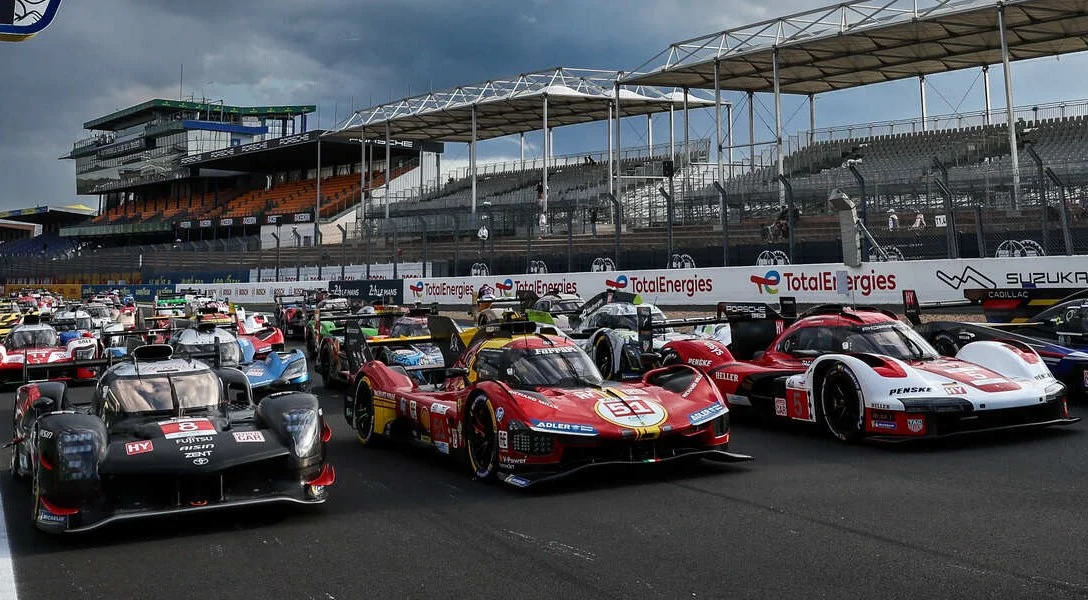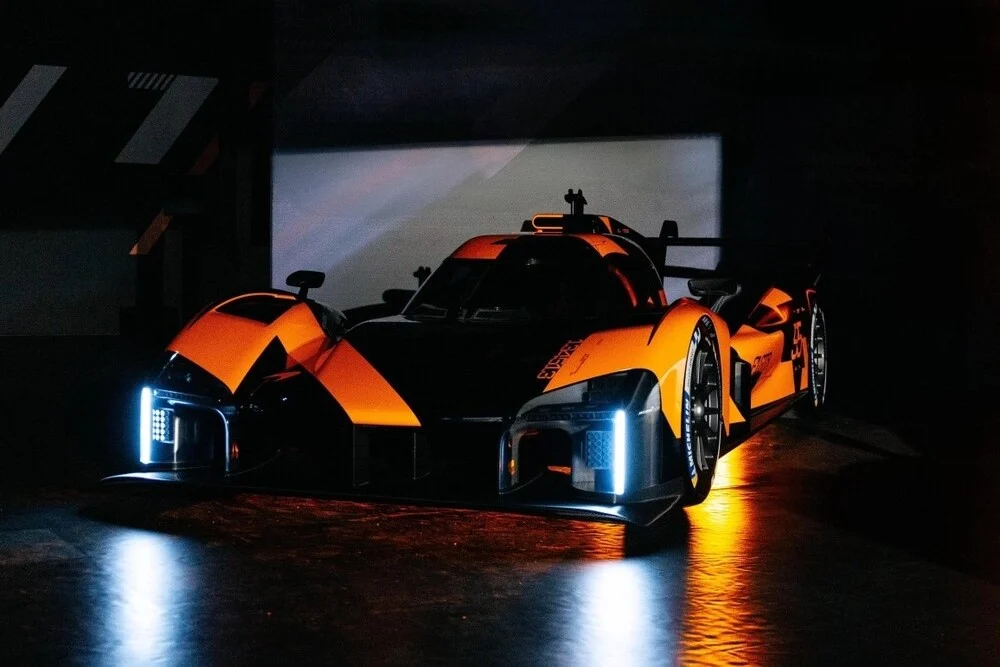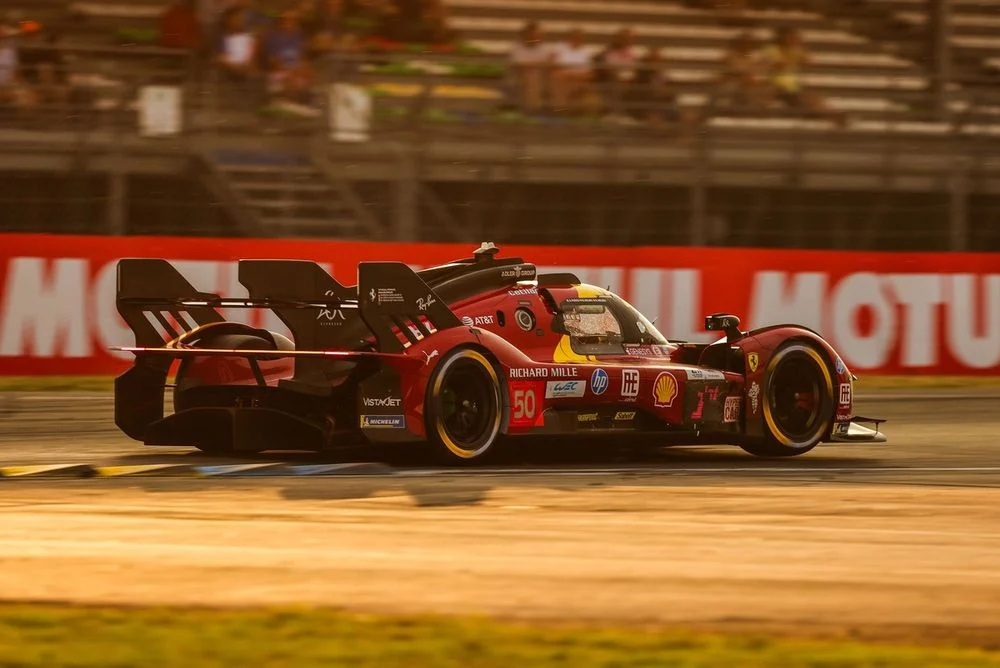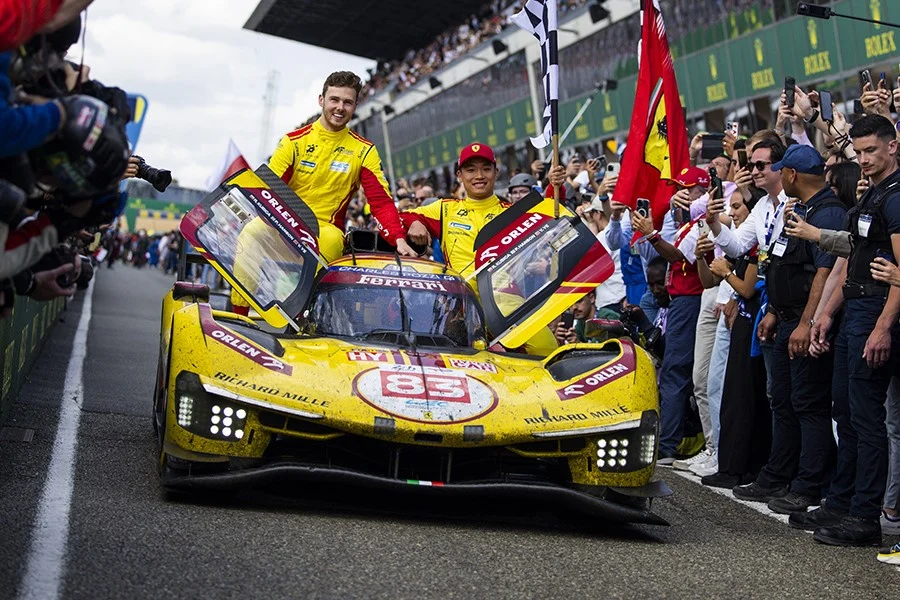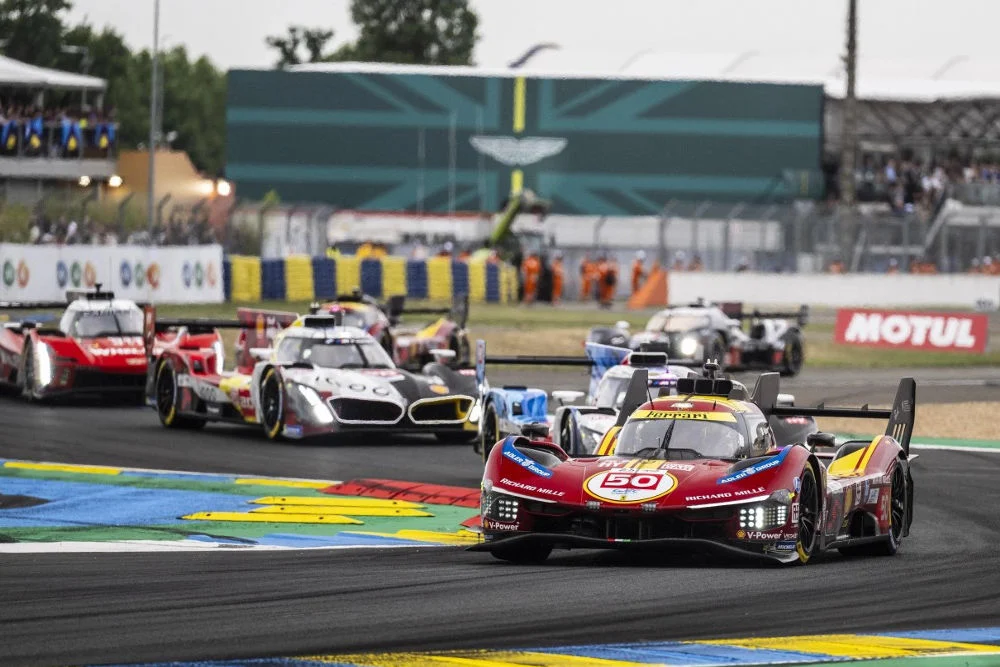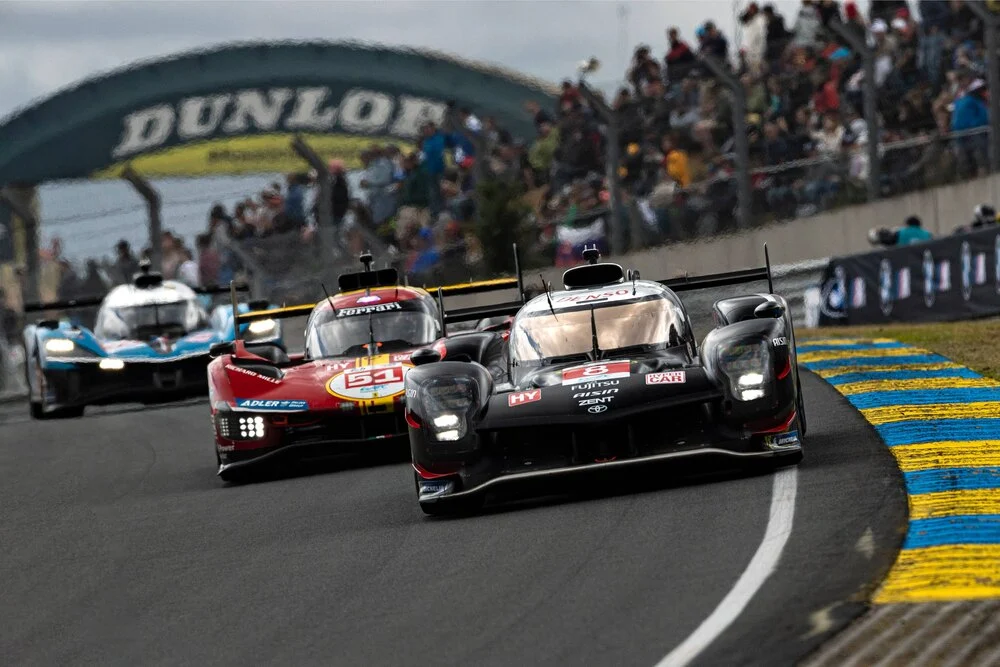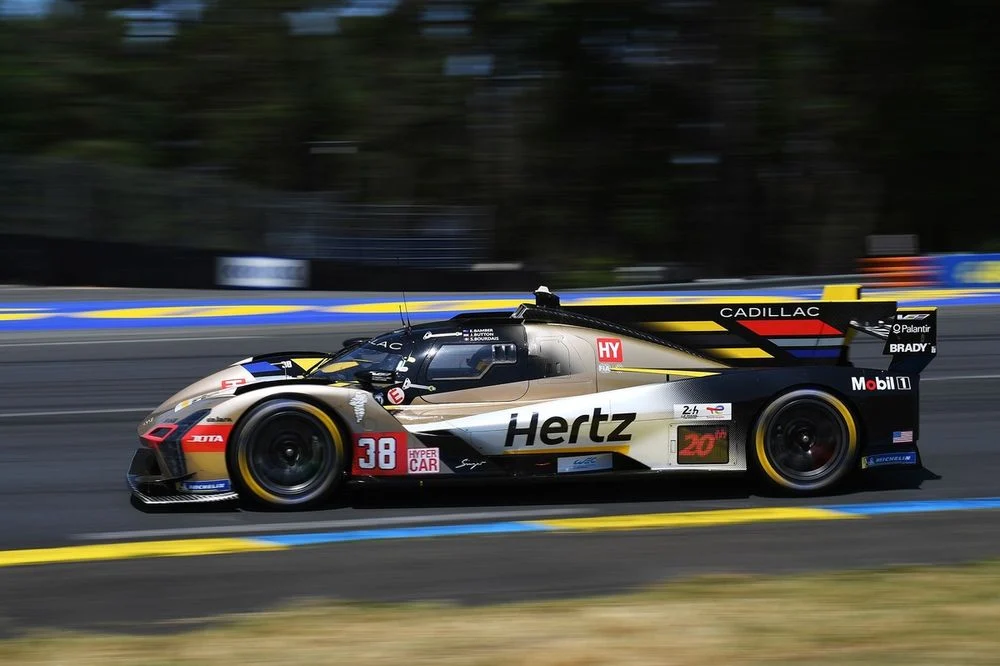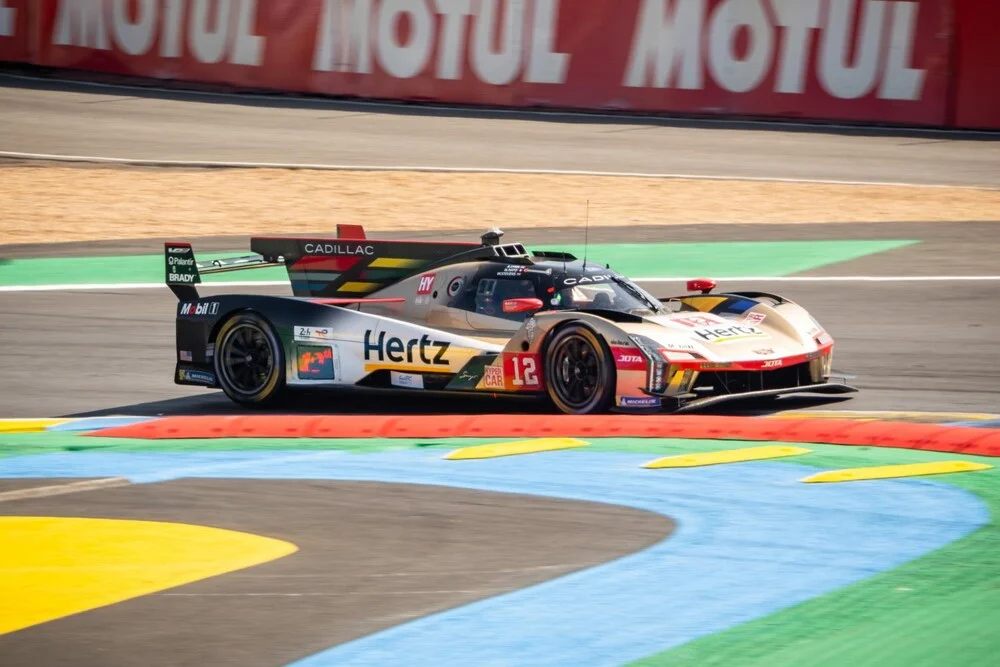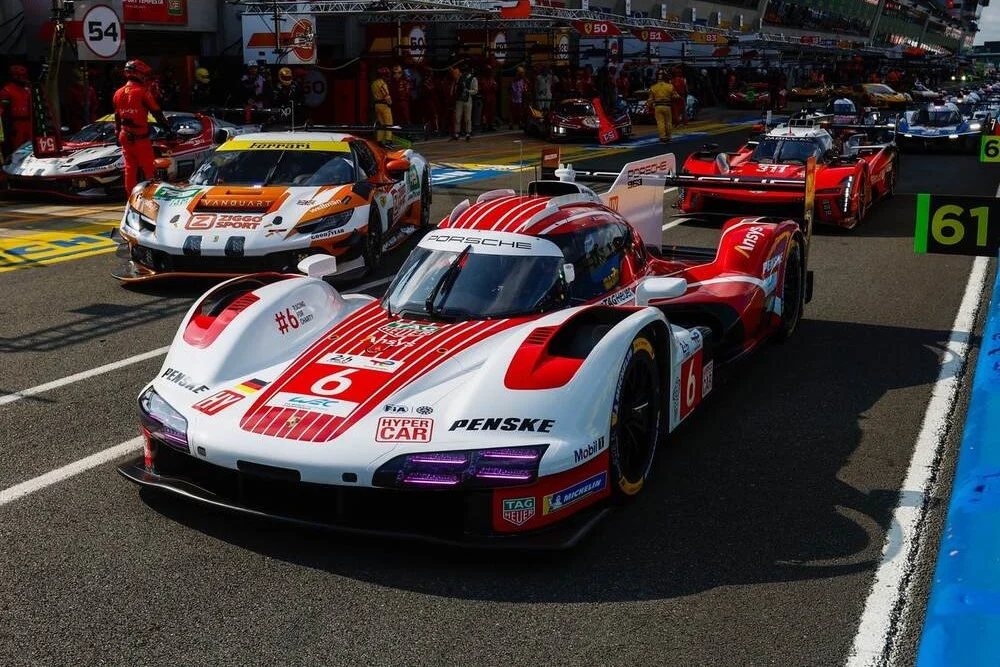As the 2024 FIA World Endurance Championship (WEC) reaches its thrilling conclusion all eyes are on the Bahrain International Circuit where the final race promises to be a dramatic showdown.
Recent Balance of Performance – BoP changes have provided both Toyota and Ferrari with a major boost, potentially altering the dynamics of the championship as they aim to challenge Porsche’s dominance at WEC 8H Bahrain season finale.
The latest BoP changes have been meticulously designed to level the playing field among competitors, particularly benefiting the Ferrari 499P and the Toyota GR010 HYBRID.
For Ferrari, the adjustments include a reduction in minimum weight by 2 kilograms, bringing it down to 1053 kilograms. This weight reduction is complemented by a power boost of 10 kilowatts, equating to an additional 13 brake horsepower (bhp), which raises its total power output to an impressive 510 kW (683 bhp) below 250 km/h.
This adjustment comes with a power gain set at a negative 0.9%, reflecting a strategic move to enhance performance without compromising competitiveness.
Similarly, the Toyota GR010 HYBRID has also received favorable adjustments. The vehicle’s weight has been reduced by 5 kilograms, now totaling 1065 kilograms. In terms of power, the hypercar has seen an increase of 6 kilowatts, translating to an additional 8 bhp, resulting in a total power output of 499 kW (669 bhp) below the same speed threshold.
The power gain for Toyota is adjusted to 4.2%, down by 1.2%, indicating a fine-tuning aimed at maximizing performance while ensuring compliance with WEC regulations.
The changes follow a difficult race at 6 hours of Fuji for both manufacturers, with Ferrari taking a best finish of ninth and Toyota scoring just a single point for tenth on home turf.
These enhancements place both manufacturers in a formidable position as they approach the WEC 8H Bahrain race, particularly given Toyota’s historical success on this circuit. The adjustments not only bolster their chances but also add an intriguing layer of strategy to the championship finale.
In contrast, Porsche—currently leading both the drivers’ and manufacturers’ standings—has faced some setbacks in recent BoP changes. The German manufacturer has received a weight increase of 7 kilograms, bringing its total weight to 1056 kilograms.
Despite the increase, Porsche 963’s power output has only seen a modest increase of 2 kilowatts, resulting in a total power output of 214 kW which leaves their power gain unaltered at a mere 0.2%.
With drivers Laurens Vanthoor, Kevin Estre, and Andre Lotterer in contention for the title, Porsche remains confident but aware that they must navigate the challenges posed by their competitors effectively.
The current championship standings indicate that Porsche only needs four points to secure the drivers’ title. Given their position, an eighth-place finish would suffice if Ferrari secures both victory and pole position; alternatively, a ninth-place finish would still clinch the title if Ferrari wins without pole.
This scenario places Porsche in a relatively low-pressure situation compared to their rivals.
For Toyota, the stakes are equally high as they trail Porsche by just two points in the championship standings. With Kamui Kobayashi and Nyck de Vries behind the wheel, Toyota’s historical performance at Bahrain offers them a tactical advantage that could prove crucial in their pursuit of victory.
Moreover, other manufacturers in the WEC are also experiencing BoP adjustments that could influence their performance at WEC 8H Bahrain. The Peugeot 9X8 LMH has been granted changes that allow it to operate at a competitive level with a power output of 520 kW (697 bhp), maintaining its weight just above the minimum limit by only one kilogram. This adjustment positions Peugeot as a potential dark horse in the race.
Conversely, Alpine’s A424 LMDh faces challenges with its recent adjustments leading to a weight increase of 4 kilograms and a decrease in power by 1 kilowatt. These changes could hinder Alpine’s competitiveness as they head into this critical race.
As teams prepare for what promises to be an exhilarating WEC 8H Bahrain season finale, strategies will undoubtedly evolve in response to these BoP changes. Teams will analyze data meticulously and adjust their setups accordingly to maximize performance under these new conditions.
The implications of these adjustments extend beyond just performance metrics; they also affect team morale and strategy on race day. Teams like Toyota and Ferrari will enter Bahrain with renewed optimism fueled by their recent enhancements, while Porsche must balance confidence with caution as they navigate potential pitfalls on track.
The WEC 8H Bahrain race is not merely about speed; it is also about strategy—deciding when to push hard and when to conserve energy will be pivotal for all teams involved. With tire management becoming increasingly critical under race conditions and varying track temperatures likely affecting grip levels, teams must remain agile in their decision-making processes throughout the event.
As the countdown continues towards race day, anticipation builds not only among teams but also among fans eager to witness how these changes will unfold on track. Will Ferrari or Toyota capitalize on their newfound advantages? Or will Porsche withstand the pressure and secure its championship titles? Only time will tell as this exciting chapter in endurance racing approaches its climax.

